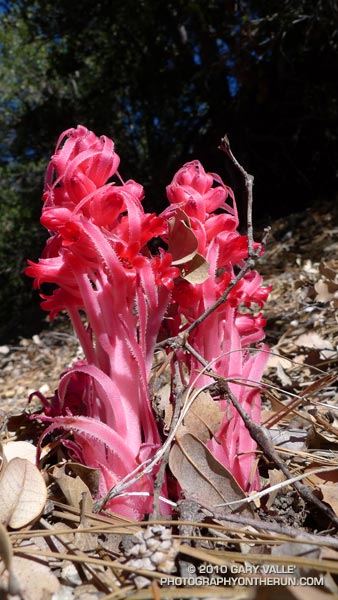
Snow plant emerging from pine needles and other detritus on the forest floor.
From Sunday’s run through Cooper Canyon.
Related post: Snow Plant

Snow plant emerging from pine needles and other detritus on the forest floor.
From Sunday’s run through Cooper Canyon.
Related post: Snow Plant
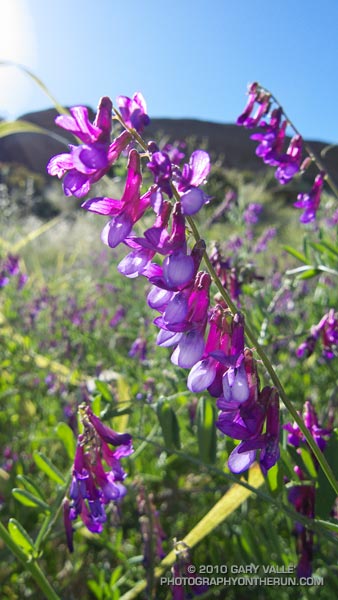
Winter vetch is a vining legume you’ll see in patches along trails in lower elevation chaparral in Southern California. It’s flowers are an unusal purple, and a closer look reveals various shades of violet, purple and rose.
Its capability to add nitrogen to soil gives it value in crop rotation and no-tillage farming. It is an invasive plant, not native to California.
From today’s run in the Simi Hills.
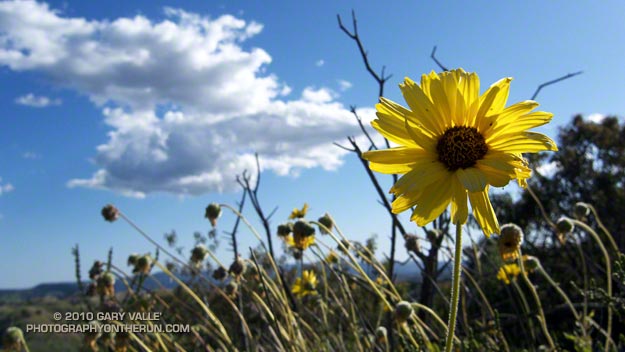
From today’s trail run to Castle Peak in the western San Fernando Valley.
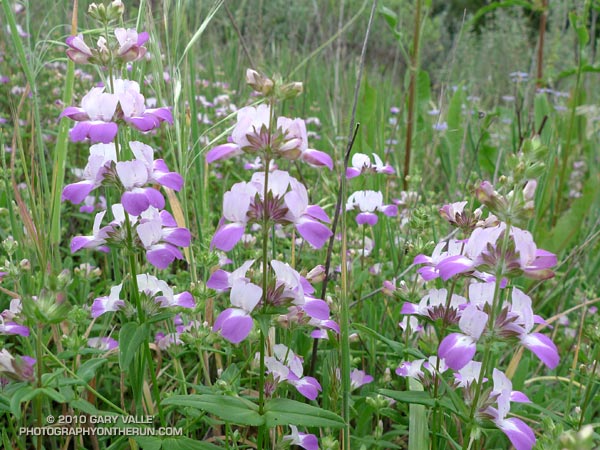
Updated April 9, 2011.
Chinese houses (Collinsia heterophylla) along the Secret Trail in Calabasas, California. From a trail run on March 30.
Was originally identified as Davidson’s Blue-Eyed Mary (Collinsia bartsiifolia var. davidsonii). Took a closer look at flowers in the same colony this year, including the internal structure of the flower. The presence of a curved basal spur > 1 mm on the two upper (stamen) filaments; corolla throat as wide as long; and calyx lobes generally sharp-tipped (per key in Jepson) distinguishes the species as the more common Collinsia heterophylla.
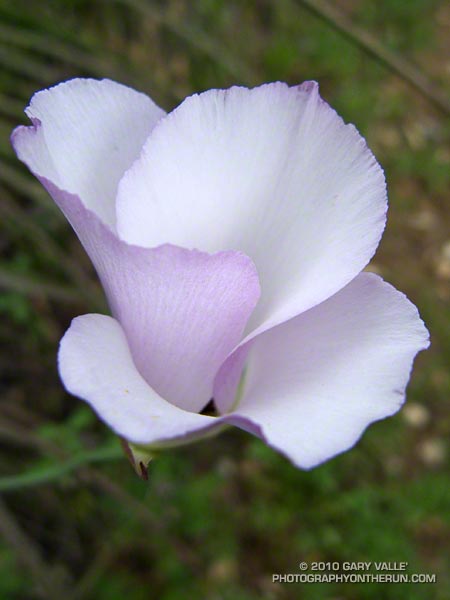
From a run this week on the Secret Trail in Calabasas, California.
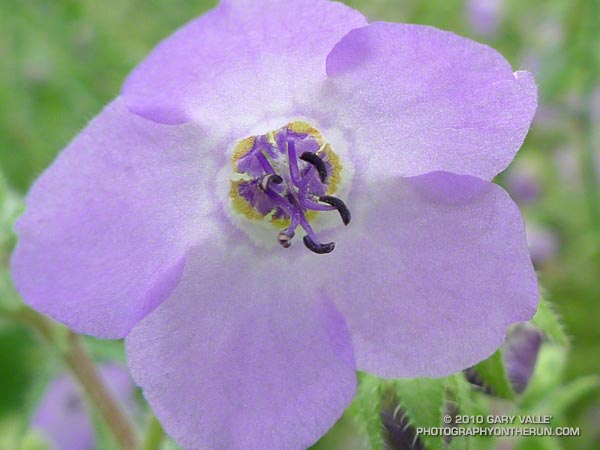
Fiesta flower (Pholistoma auritum) near Big Cone Camp in Santa Paula Canyon.